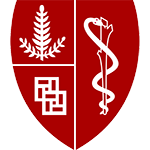
Sep 20, 2010
An international collaboration identifies a region of DNA necessary for FSHD and focuses attention on DUX4 as the cause of muscle deterioration.

Sep 16, 2010
This brought together the various labs which have been collaborating in an effort to push ahead on FSH research through an open exchange of unpublished research.

Jul 25, 2010
Clinical study participants needed.

Jul 15, 2010
Researchers at the Stanford University School of Medicine have developed a technique they believe will help scientists overcome a major hurdle to the use of adult stem cells for treating muscular dystrophy and other muscle-wasting disorders that accompany aging or disease: They've found that growing muscle stem cells on a specially developed synthetic matrix that mimics the elasticity of real muscle allows them to maintain their self-renewing properties.

Jun 26, 2010
Five-year NIH grant to a consortium of FSHD research labs.

Apr 5, 2010
The Muscular Dystrophy Association (MDA), headquartered in Tucson, Ariz., and Friends of FSH Research (FFSHR), based in Kirkland, Wash., today jointly awarded a two-year, $200,000 grant to Joel Chamberlain, research assistant professor of medical genetics at the University of Washington. The grant, equally funded by the two organizations, will enable the laboratory led by Dr. Chamberlain to study RNA interference as an investigative and therapeutic tool for facioscapulohumeral muscular dystrophy.

Mar 9, 2010
The current update of the report on Prevalence or reported number of published cases listed in alphabetical order of disease lists FSHD as occurring in approximately 7 out of 100,000 individuals. This is compared to 5 out of 100,000 individuals for Duchenne and Becker muscular dystrophy, formerly considered the most prevalent form of muscular dystrophy.

Jan 23, 2010
Drs Tapscott and Miller aim to use this grant to finalize the preliminary studies and applications to NIH for funding an international cooperative study on FSHD.

Sep 9, 2009
Dr. Kyba's paper on linking high expression of mDUX to myoblast death.

Aug 1, 2009
FSHD research continues to move forward with the generous help from the Friends of FSH Research. Dr Dan Miller at the University of Washington’s Institute for Stem Cell and Regenerative Medicine, and Dr. Stephen Tapscott at the Fred Hutchinson Cancer Research Center think that one possible cause of muscle weakness in FSHD is a defect in the generation of muscle tissue that may start before birth, and persist as muscles are continually modified and repaired throughout life.

Jun 2, 2009
Facioscapulohumeral muscular dystrophy (FSHD), caused by partial deletion of the D4Z4 macrosatellite repeat on chromosome 4q, has a complex genetic and epigenetic etiology. To develop FSHD, D4Z4 contraction needs to occur on a specific genetic background. Only contractions associated with the 4qA161 haplotype cause FSHD.

Jun 1, 2009
Several genes have been examined as candidates for causing FSHD, including the DUX4 homeobox gene in the D4Z4 repeat, but none have been definitively shown to cause the disease, or has the full extent of transcripts from the D4Z4 region been carefully characterized.

Jun 1, 2009
Research on the cause and treatment of facioscapulohumeral muscular dystrophy (FSHD) might be entering a new, and hopefully better, era. For many years FSHD has been a difficult disease for medical researchers to study. In most genetic diseases, a gene with some known function is mutated and no longer performs its normal biological role. To find a treatment for such a disease, the medical researcher needs to identify therapeutic interventions that will compensate for the mutant gene.

Aug 8, 2008
Dr. Tapscott aims to use this grant to identify the potential mechanisms that cause FSHD, identifying the molecular changes that result from the FSHD mutation.

Aug 1, 2008
Dr. Kyba will insert D4Z4 repeats into the mouse genome in ES at a site on the X-chromosome, known to enable tissue-specific expression of transgenes, and to tolerate dominant lethal genes. He will study whether the presence of these repeats affects differentiation of the ES cells, and will produce mice bearing D4Z4 repeats, as a potential animal model for FSHD.

Jul 19, 2008
Friends of FSH Research in collaboration with the MDA fund a two-year grant for Dr. Joel Chamberlain.

Apr 15, 2008
$6.3 Million Dollar Grant for FSH Research — The Pathogenesis of FSHD.

Jan 16, 2008
Miller & Tapscott provide a first year summary of progress.






Connect with us on social media